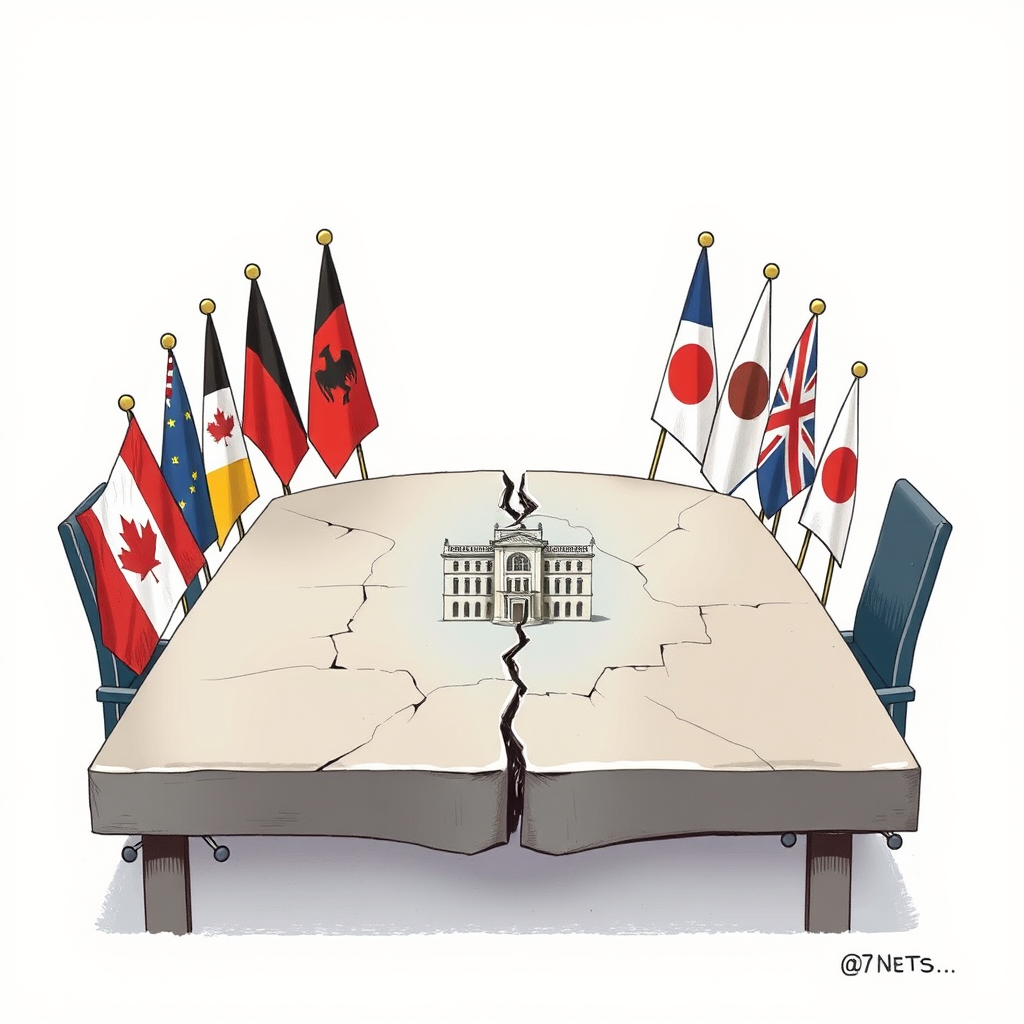Trump Blocks G7 Condemnation of Russia’s Ukraine Attack

The G7’s effort to issue a formal condemnation of a recent Russian missile strike on Ukraine has reportedly been blocked by the Trump administration, according to a Bloomberg News report published Tuesday. The strike, which occurred on Palm Sunday morning in the northeastern city of Sumy, utilized short-range ballistic missiles, including one containing cluster munitions, resulting in at least 35 deaths and 119 injuries, as stated by Ukrainian President Volodymyr Zelenskiy.
While the other G7 nations sought a unified statement denouncing the attack, the Trump administration has refused to sign on, citing a desire to “preserve the space to negotiate peace.” Canadian officials, holding the G7 presidency this year, indicate that without U.S. support, the statement cannot be released.
This stance represents a significant departure from previous U.S. policy. Since taking office, the Trump administration has increasingly prioritized a peaceful resolution to the conflict, even if it necessitates concessions to Russia. This shift is particularly concerning given the clear asymmetry of the conflict – Ukraine is the invaded nation.
During a recent meeting with the President of El Salvador, Trump directly blamed Zelenskiy for the bloodshed, questioning Ukraine’s preparedness for war and its reliance on external missile supplies. This assessment ignores the fundamental reality of the situation: Ukraine is defending its sovereignty against an aggressor. Trump also labeled Zelenskiy a “dictator” due to the suspension of elections – a measure consistent with Ukraine’s constitution during wartime and broadly supported by Ukrainian political factions.
The blocking of this G7 statement is deeply troubling. While diplomatic efforts to de-escalate the conflict are essential, they should not come at the expense of accountability. To suggest equivalence between the aggressor and the defending nation, or to prioritize “peace negotiations” over condemning a deliberate attack on civilians, sends a dangerous message. It effectively emboldens Russia and undermines international efforts to uphold the principles of sovereignty and territorial integrity. The pursuit of peace cannot come at the cost of principle, and a strong, unified condemnation of Russian aggression is a necessary component of any credible diplomatic strategy.